- Home
- Joy Fielding
Heartstopper Page 2
Heartstopper Read online
Page 2
I don’t have any pastry for this girl, although in a couple of hours, after I’ve grabbed something to eat myself, I may bring her back a sandwich. I haven’t decided yet. Certainly a good host would provide for guests. But then, no one ever said I was a good host. No five stars for me.
Still, the accommodations aren’t all that bad, considering. I haven’t buried her in an underground coffin or thrown her into some snake-and-rat-infested hole. She hasn’t been stuffed into some airless closet or chained to a stake atop a nest of fire ants. Her arms haven’t been bound behind her back; there’s no gag in her mouth; her legs are free to traverse the room. If it’s a little warmer than she might like, she can take comfort in that it’s April and not July, that it’s unseasonably cool for this time of year, and that it’s evening and not the middle of the afternoon. Given my druthers, I too would opt for air-conditioning, as would any sane individual, but one takes what one can get, and in this case, what I could get was this: a dilapidated old house at the edge of a long-neglected field in the middle of Alligator Alley, in the middle of south-central Florida.
The middle of nowhere.
Sometimes being stuck in the middle of nowhere can be a blessing in disguise, although I know at least two girls who would disagree.
I discovered this house about five years ago. The people who built it had long since abandoned it, and termites, mold, and dry rot had pretty much taken over. Far as I can tell, no one’s made any attempt to claim the land or tear this old place down. It costs money to demolish things, after all, even more to erect something in its place, and I seriously doubt that anything worth growing would grow here, so what would be the point? Anyway, I stumbled upon it by accident one morning when I was out, walking around, trying to clear my head. I’d been having some problems on the home front, and it seemed like everything was closing in on me, so I decided the best thing to do was just remove myself from the situation altogether. I’ve always been like that—a bit of a loner. Don’t like confrontations; don’t like to share my feelings all that much. Not that anyone was ever much interested in my feelings.
Anyway, that’s the proverbial water under the bridge. No point brooding about it now, or living in the past. Live for today—that’s my motto. Or die for it. As the case may be.
Die for today.
I like the sound of that.
Okay, so it’s five years ago, and I’m out walking. It’s hot. Summer, I think, so really humid. And the mosquitoes are buzzing around my head, starting to get on my nerves, and I come across this ugly, old field. Half-swamp really. Probably more than a few snakes and alligators hiding in the tall grass, but I’ve never been one who’s afraid of reptiles. In fact, I think they’re pretty awesome, and I’ve found that if you respect their space, they’ll usually respect yours. Even so, I’m careful when I come here. I have a trail pretty well etched out, and I try to keep to it, especially at night. Of course, I have my gun, and a couple of sharp knives, should anything unexpected happen.
You always have to guard against the unexpected.
Somebody should have told that to this girl.
The main part of the house isn’t much—a couple of small rooms, empty, of course. I had to supply the cot, which was kind of tricky, although I won’t get into any of those details now. Suffice to say, I managed it all by myself, which is the way I usually do things. There’s a tiny kitchen, but the appliances have been ripped out, and there’s no running water in the taps. The same is true of the bathroom and its filthy toilet, its once-white seat cracked right down the middle. Wouldn’t want to sit on that thing, that’s for sure.
I’ve thoughtfully provided the girl with a plastic bucket, should she need to relieve herself. It sits in a corner to the left of the door. She kicked at it earlier, when she was flailing around, so right now it’s lying on its side at the other end of the room. Maybe she doesn’t realize yet what it’s for.
The first girl chose to ignore it altogether. She simply lifted up her skirt and squatted right there on the floor. Not that she had to hike her skirt very far. It was so ridiculously short, it could have passed for a belt, which I guess was the look she was going for—strictly Hooker City. Of course, she wasn’t wearing panties, which was pretty disgusting. Some might say she was no better than an animal, although not me. No way I’d say that. Why? Because it disrespects the animals. To say that girl was a pig is to slander the pig. Which, of course, is why I chose her. I knew no one would miss her. I knew no one would mourn her. I knew no one would come looking for her.
She was only eighteen, but already she had that knowing look in her eyes that made her seem much older. Her lips had frozen into a cynical pout, more sneer than smile, even when she was laughing, and the veins on the insides of her skinny arms were bruised with the piercing of old needles. Her hair was a frizzy cliché of platinum curls and black roots, and when she opened her mouth to speak, you could almost taste the cigarettes on her breath.
Her name was Candy—she even had a bracelet with candies for charms—and I guess you could say she was my test case. I’m the kind of person who doesn’t like doing anything halfway—it has to be perfect—and once I knew what I had to do, I realized I’d have to plan everything carefully. Unlike so many people you read about, I have no desire to be caught. Once this project is over, I plan to retire and live peacefully—if not always happily—ever after. So, it was important that I get things right.
Hence, Candy.
I met her at a Burger King. She was hanging around outside, and I offered to buy her a burger, an offer she accepted readily. We talked, although she didn’t have a lot to say, and she clammed up altogether when my questions got too personal. That’s okay. I understand that. I’m not too fond of personal questions myself.
But I did find out some key facts: she’d run away from home at fourteen and had been living on the streets ever since. She’d met some guy; he’d gotten her hooked on drugs, and the drugs had, in turn, gotten her hooked on hooking. After a while, the guy split, and she was on her own again. She’d spent much of the last year moving from place to place, occasionally waking up in a strange hospital room or holding cell. One place was pretty much the same as the next, she said.
I wonder if that’s how she felt when she woke up here, in the underground room of this forgotten, old house.
Did I neglect to mention this room is underground? Shame on me—it’s what makes the place so special, the “pièce de résistance,” if you will.
I said before that, for the most part, houses in Florida don’t have basements. That’s because they’re built on what is essentially quicksand, and you could wake up one morning to find yourself up to your eyeballs in muck. Entire homes have been swallowed up, and I’m not just talking about the older, less substantial ones. There’s a brand-new subdivision going up not far from here, built almost entirely—and ill-advisedly, in my humble opinion, not that anybody has asked for my opinion—on landfill, and one day, one of the houses just up and disappeared. The builders didn’t have to look very far to find it, of course. They were standing on top of it. Serves them right. You can only go so far challenging nature.
If I were going to build a house today, I’d hire the guy who designed this one. True, it’s seen better days, but whoever constructed it was a genius. He created a whole warren of little rooms underneath the main floor, rooms he probably used for storage.
I have something quite different in mind.
Candy didn’t think much of the place when she realized it wasn’t the kind of holding cell she was used to. Once I finally showed myself, and the seriousness of her predicament became clear, she tried all the tricks in her arsenal, said if sex was the goal, there was no way she was doing anything with me on that dirty old cot. She’d do whatever perverted things I wanted, only not here. The idea of sex with this person was so repugnant I was tempted to kill her on the spot, but the game was far from over. I still had some surprises up my sleeve.
Ultimately I killed her with
a single bullet to the head. Then I dumped her body in a swamp a few miles away. If anybody finds it, and I doubt they will—it’s been four months after all—there’ll be nothing left to link her to me, no way of determining exactly when she died, at what precise moment her heart stopped beating. Even had she been found immediately, all in one piece, I know enough about DNA, courtesy of all those surgically enhanced forensic experts on TV, to ensure I’ve left no clues.
Just as Candy left no mourners.
But this girl, this heartstopper with the big blue eyes and large, natural breasts, will be different.
Not only will a lot of people be out looking for her—they may even be looking for her now—she’ll be more of a challenge all around. Candy was a trifle dim-witted to be much fun. This girl is stronger, both mentally and physically, so I’ll have to up my game, as they say—move quicker, think faster, strike harder.
She’s looking this way again, as if she knows I’m here, as if she can hear the scribbling of my pen. So I’ll sign off for now, go grab something to eat. I’ll come back later, initiate phase two of my plan.
Maybe I’ll keep the girl alive till morning. Maybe not. Risk management after all. It doesn’t pay to get too cocky.
Stay tuned, as they say. I’ll be back.
TWO
Okay, everybody. Get out your journals.”
Sandy Crosbie leaned back against the front of her desk at the head of the twelfth-grade classroom and watched her twenty-three students—it should have been twenty-five, but both Peter Arlington and Liana Martin were absent—reluctantly separate their journals from the rest of their books and plop them down on their desks with varying degrees of disinterest and dismay. Bored, glazed eyes rolled slowly back toward her. Bodies slumped dispassionately in their seats. Denim-covered legs stretched lazily across the floor. Pencils absently tapped out an overlapping series of unrecognizable tunes. Everybody, including Sandy Crosbie, clearly wished to be somewhere else.
And why not? Who in their right minds wanted to be cooped up inside a stuffy portable when they could be outside cavorting in the sun? (Would any of her twenty-three students—twenty-five if you included the absent Peter Arlington and Liana Martin—even know what cavorting meant? And was cavorting exactly what rumored sweethearts Peter Arlington and Liana Martin were doing in their absence?) Sandy’s gaze floated above the five rows of reluctant scholars toward the portable’s long expanse of side windows. Outside, it was a beautiful April day, although much cooler than was usual for this time of year. At least that’s what everyone kept telling her. “You should have been here last April,” they kept saying. “This is a good ten degrees colder than normal.” But Sandy didn’t mind the cooler temperatures. In fact, she actually preferred them. It reminded her of upstate New York, where she’d been born and raised. Everyone—especially Ian—had always complained about the brutal Rochester winters, but Sandy was one of those rare creatures who’d genuinely enjoyed the snow and often frigid temperatures. She liked bundling up. It made her feel safe.
What the hell was she doing in Torrance, where the average annual temperature was a humid eighty-five degrees?
Last summer’s move to Florida hadn’t been her idea. It had been Ian’s. He’d spent the better part of two years promoting the move from big northern city to small southern town. “It’ll be good for my practice, for our kids, for our marriage,” he’d promised, cajoled, and ultimately badgered. “I’ve made some inquiries, and you won’t have any trouble finding a teaching position. Come on. Where’s your sense of adventure? At least give it a try. Two years tops. I swear if you’re not happy, we won’t stay.”
At least that’s what he said. What he meant was: I’ve fallen madly in love with this woman I met on an Internet chat line, and I’m determined to sell my practice, uproot you and the kids, and move to this little town in Florida to continue the affair in person. If it doesn’t work out, then we can leave.
Which he had. Exactly seven weeks ago today, Sandy calculated silently, her eyes focusing on a poster promoting literacy at the back of the class, in a concerted effort to keep from bursting into tears. While she doubted this was his first affair—her suspicions had been aroused, although never proven, several times over the years—the news that he was leaving her came as a total surprise. She’d actually considered the reason he was so eager to leave Rochester might have been to get away from a dalliance gone stale. It had never occurred to her he might be running toward a fresh one.
So she’d watched in shocked silence as he’d packed his old suitcase and his new doctor’s bag, the one she’d given him as a gift when he’d opened his new office, and moved into a spacious, one-bedroom apartment on the other side of town, which just happened to be around the corner from the home of Kerri Franklin, Barbie clone and Internet paramour extraordinaire. The only thing that had prevented him from actually moving in with the big-lipped, bigger-haired divorcée was that her mother had already beaten him to it, settling in comfortably after the collapse of Kerri’s third marriage, and showing not the slightest inclination of moving out again. Since local gossip held that it was Rose Cruikshank’s money that was responsible for the recent—some might even say alarming—increase in the size of Kerri’s bosom, Kerri was naturally reluctant to kick her mother out in the cold. This April being, after all, ten degrees cooler than usual.
There was also the matter of Kerri’s daughter, Delilah. Sandy glanced toward the first seat of the third row, where, in another of life’s annoying little ironies, the unfortunately named teenager had landed front and center in Sandy’s first-period English class. She currently sat chewing nervously on the end of her black, ballpoint pen, and looking toward the floor, obviously hoping she wasn’t about to be called on to read her latest entry aloud.
Because Torrance had a population of barely four thousand people—according to the sign on the outskirts of town, its official total was 4,160—and most of those people lived in what locals referred to as the suburbs, and what Sandy called the swamps, there was only one high school in town. Torrance High was host to almost four hundred teenagers, and the teacher turnover rate was almost as high as the daily student absentee rate, hence Sandy’s ease at finding a job. The school itself, a sprawling one-story structure, was an attractive, if unimaginative, mix of modern and traditional, wood and stone. It was originally built to hold a maximum of three hundred students, but a sudden explosion in the number of young people in the area had resulted in the recent addition of four portable classrooms at the back of the parking lot. Being the new girl on the block, Sandy had been assigned the last of these mini-prisons, and it was here she taught English literature and composition to the largely disinterested sons and daughters of the good citizens of Torrance. Included among them was Kerri Franklin’s daughter, Delilah.
The name Delilah was unfortunate because, unlike the notorious biblical siren, Kerri Franklin’s eighteen-year-old daughter, while pretty enough, was what once might have been described, euphemistically, as big-boned. When Sandy was feeling generous, she concluded that Delilah likely resembled her father, Kerri’s first husband, who had disappeared from her life when the child was two; when she wasn’t feeling quite so generous, she decided Delilah no doubt looked exactly like her mother had before plastic surgery had turned her into small-town Florida’s answer to Pamela Anderson. When Sandy was feeling downright peckish, she liked to imagine Kerri Franklin’s multiple surgeries collapsing all at once—the tiny button nose popping and falling from her face, the cheek and breast implants leaking, then imploding, the giant lips deflating, the wrinkle-free forehead shriveling, the miles of Botox in her system turning malignant and unleashing their toxins, causing Kerri’s skin to flake, discolor, and turn scabrous.
Sandy sighed, louder than she’d intended. The wayward sigh caught the attention of Greg Watt, a muscle-bound troublemaker she’d moved from the back of the class to the front in her latest effort to retain at least a semblance of control over her restless brood. Greg—
tall and vacuously good-looking, with closely cropped blond hair and small, dark eyes—was staring at her as if he were about to pounce. If he were an animal, Sandy thought, he’d be a pit bull.
And she’d be the poor little toy poodle he was about to tear limb from limb, she thought, tucking her curly, chin-length, brown hair behind her right ear, and feeling vulnerable, although she wasn’t sure why.
“Something wrong, Mrs. Crosbie?” he asked.
“Everything’s fine, Greg,” she said.
“Glad to hear it, Mrs. Crosbie.”
Was it her imagination or had he placed undue inflection on the Mrs. part of Mrs. Crosbie? Certainly it was no secret in Torrance that her husband had just left her after almost twenty years of marriage. Nor was it a secret whom he’d left her for. In fact, Sandy had quickly learned that there were few secrets in a town the size of Torrance. It hadn’t taken much longer to realize that, in spite of this, everybody seemed to have one.
“Okay. Who wants to read their latest journal entry?” Sandy asked, bracing herself for the rush of silence she knew would follow. “Any volunteers?” Why am I not surprised? she continued under her breath when eager hands failed to push their way into the air. She looked up and down the first two rows, finally settling on Victor Drummond, in the second-to-last seat of the second row. The boy was dressed completely in black, his naturally tanned face covered by a layer of white powder. Pale blue eyes were outlined in black; the natural pout of his lips was exaggerated by bright, Marilyn Manson—red lipstick. “Victor,” Sandy said with all the cheeriness she could muster. “How about you?”

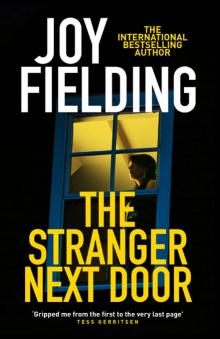 The Stranger Next Door
The Stranger Next Door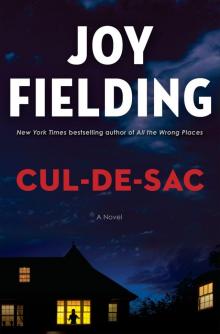 Cul-de-sac
Cul-de-sac The Final Act
The Final Act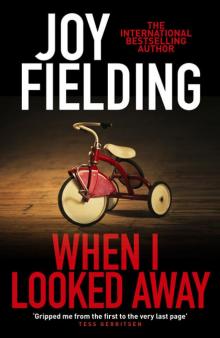 When I Looked Away
When I Looked Away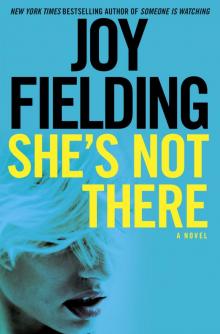 She's Not There
She's Not There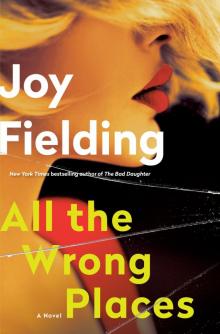 All the Wrong Places
All the Wrong Places Now You See Her
Now You See Her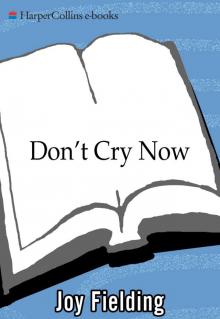 Don't Cry Now
Don't Cry Now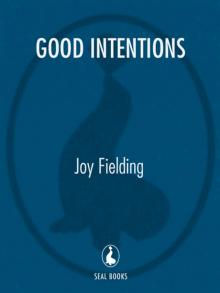 Good Intentions
Good Intentions Still Life
Still Life Lost
Lost The First Time
The First Time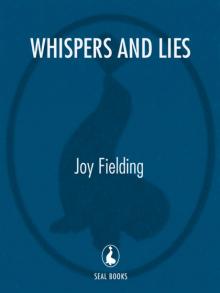 Whispers and Lies
Whispers and Lies The Other Woman
The Other Woman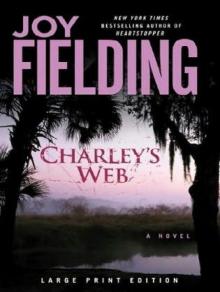 Charley's Web
Charley's Web Mad River Road
Mad River Road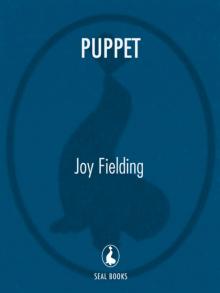 Puppet
Puppet Life Penalty
Life Penalty The Wild Zone
The Wild Zone Home Invasion
Home Invasion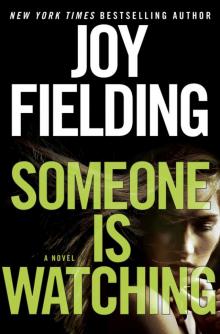 Someone Is Watching
Someone Is Watching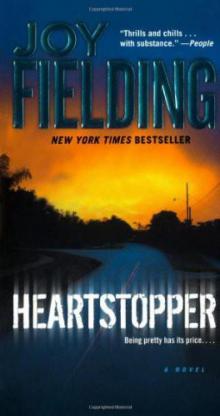 Heartstopper
Heartstopper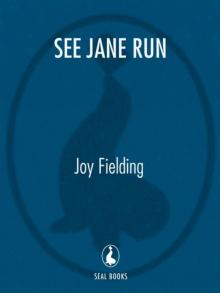 See Jane Run
See Jane Run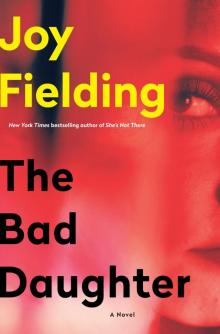 The Bad Daughter
The Bad Daughter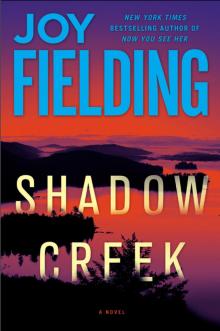 Shadow Creek
Shadow Creek Missing Pieces
Missing Pieces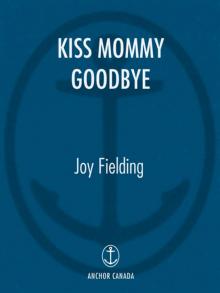 Kiss Mommy Goodbye
Kiss Mommy Goodbye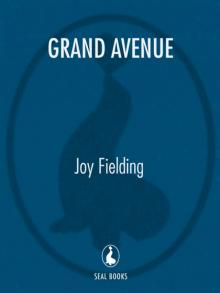 Grand Avenue
Grand Avenue